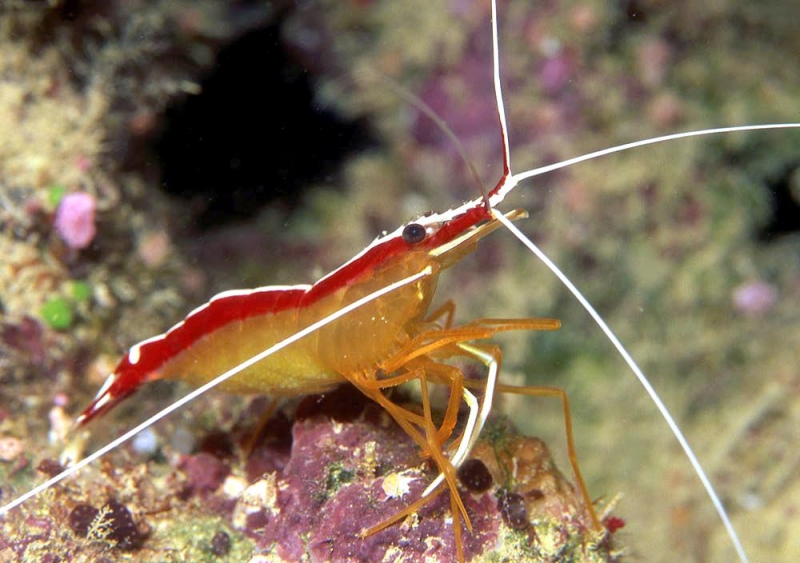

This Shrimp’s Got Rhythm
Science Magazine | April 25, 2005
By Kelli Whitlock Burton
Yellow-beaked cleaner shrimp may not sing for their supper, but they’ll dance to get a meal, a new study suggests. The small crustaceans, which dine on parasites that infest large, predatory fish, use the dance to attract customers.
Cleaner shrimp (Urocaridella antonbruunii) live at “cleaning stations” in small caves or crevices in Australian coastal reefs. Fish enter the station to rid their bodies of disease-causing parasites, which become a free meal for the shrimp. With as many as 25 shrimp in a station, however, competition for business is fierce, and University of Queensland behavioral ecologist Justine Becker wondered how the shrimp attracted their customers.
In the new study, Becker’s team observed the interactions between cleaner shrimp and various species of parasite-laden predatory fish in the wild. As potential customers approached, one or more shrimp moved toward the fish, shifting side-to-side in a dance the researchers suspect signals that the shrimp are available for cleaning: Every time a cleaner shrimp danced, it successfully lured a new customer, the researchers report 26 April in Current Biology. Some fish detect moving objects more easily, the researchers say, so the shrimp’s dance may make them more visible to fish that want to be cleaned.
To test whether hunger or the mere presence of fish stimulates the dance, the researchers placed two shrimp–one starved and the other stuffed–in a glass tank next to a tub containing a potential client fish. The starved shrimp were twice as likely to dance as the satiated shrimp, suggesting the shrimp danced because they wanted to eat.
The findings imply that differences in advertisement rate may drive shrimp evolution, as better advertisers would have more access to food, says Lee Alan Dugatkin, a behavioral ecologist at the University of Louisville in Kentucky and expert on the evolution of cooperation. “That’s often implied, but to have data on it is an important advance.”
